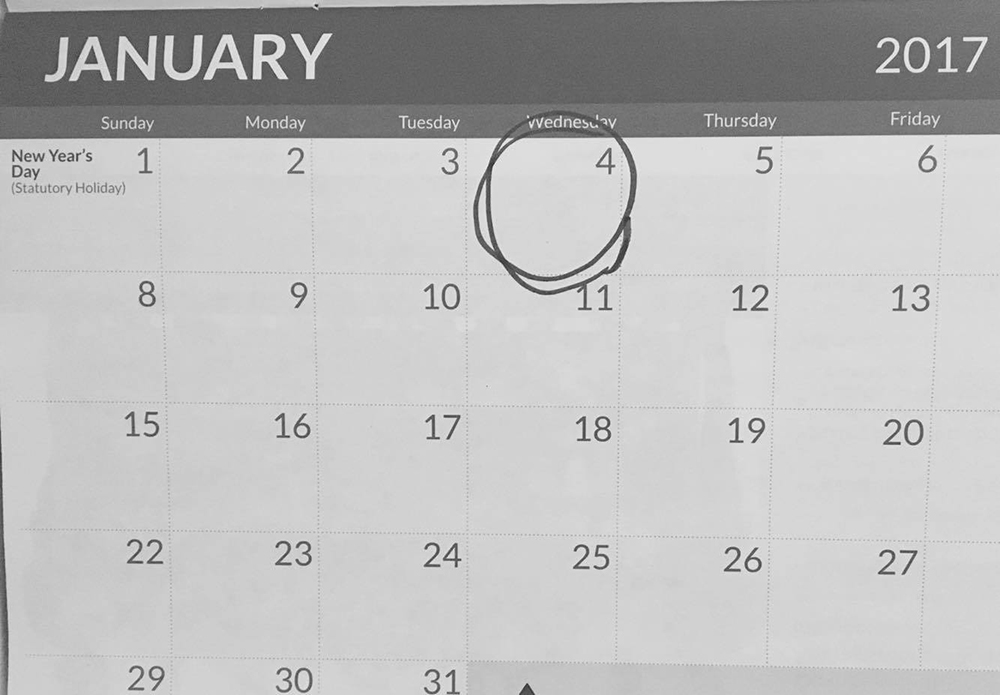Angelica Babiera | Staff Writer
Featured image: Many shoppers ring in the new year with thinner wallets and unexpectedly large bills. | Azeb Yusuf
Whenever a new year rolls around, I always find myself checking social media sites to see what my friends are putting up as their New Year’s Resolutions. Most times, I see the same individuals reposting the same unrealistic and unachievable goals.
A popular resolution that commonly fails is weight loss. The reality is that you can’t lose30 pounds in two weeks if you’ve never trained your body to eat meticulously and work out for long hours. Even after shedding those pounds quickly, the possibility of temptation and snapping back could lead to unhealthy choices and regaining the weight.
Ultimately, it’s important to realize that in order to achieve big goals by the end of the new year, making changes slowly and consistency can help guarantee results. Tackling a goal like major weight loss can seem daunting and can leave you feeling overwhelmed. By starting out small and gradually building your way up, you can handle the stress and challenges with class and grace.
Like weight loss, grades can seem like a daunting goal. Do not set yourself up for failure by over-scheduling study time, leaving little to no time for relaxation and socializing. By starting small, creating a manageable schedule and incorporating downtime, you can make this goal more achievable.
“I have a job and schoolwork to do, but since I only work two to three times a week and have one to two classes per day, I’m pretty relaxed with the workload,” says Frazielle Agtarap, a second-year global health student.
“What I do is a simple time management practice where if I’m working a 6 a.m. to 3 p.m. shift, I relax until 5 p.m.
“I believe in organization. You need a good system where everything has been planned out for your needs. You need to invest in a good agenda or planner because they really help you.”
This type of meticulous practice in managing time could be easily applied to anything. Like Agtarap, many students juggle work, school and extracurricular commitments. Building a routine can help improve performance and help combat stress.
Financially speaking, many students struggle because of high tuition costs and lack of stable income. An easy trick to start off the new year financially right is budgeting in a treat day. Essentially, what it requires is saving your money for a period of time—month, week or year—and then rewarding yourself with a dinner at your favourite restaurant or buying the gaming console you’ve been eyeing. That way, you are cutting back and spending more frugally and have something to look forward to, which can help you stay motivated and on track.
Taking time to reflect on a daily or weekly basis can help you feel grounded and be beneficial towards your performance at work, classes and extracurricular activities.
“If you meditate before going to bed for five minutes every night, you will become so relaxed with yourself and your surroundings,” says Medina Torlak, a second-year criminology student. “It’s just a simple breathing exercise where you just inhale and exhale deeply. This helps me clear my mind and combat my stress.”
What is important to note is that no matter how many tips one has, unless they want to make the change themselves, it won’t happen. Successfully reaching your resolutions comes from how much effort you put into making changes. Begin small, be consistent and changes will come.


